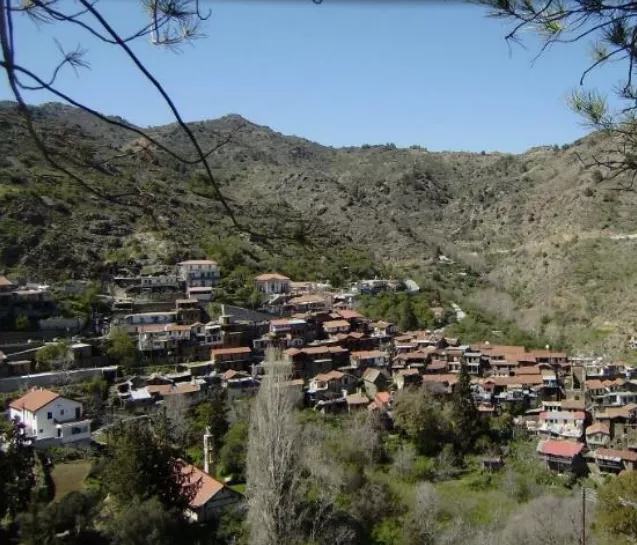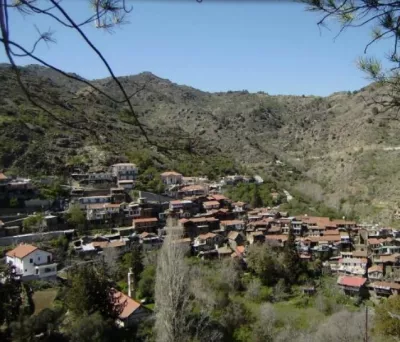Summary
The village of Askas has installed a photovoltaic system at the biological station which is connected to the electricity authority of Cyprus network. This initiative, developed in cooperation with various public and private organisations, involved the active participation of citizens in both the design and implementation phases through participatory meetings.
The installed power system has a capacity of 16.5 KW and operates using the net billing method, resulting in a 70% reduction in resource consumption compared to the previous system. The initiative promotes energy self-sufficiency, reduces dependence on fossil fuels, and encourages the expansion of renewable energy systems within a grid-connected environment.
Results
The photovoltaic system, developed in cooperation with different public and private organisations and the direct engagement of citizens, highlights the contribution of the project´s results to community empowerment and the promotion of sustainable practices.
The project has also influenced other local and broader initiatives aimed at safeguarding natural resources and fostering a harmonious relationship between humans and their environment. It showcases the viability of a photovoltaic system as a sustainable energy source. This leads to a reduced carbon footprint and decreased dependence on fossil fuels.
Finally, the engagement of the community in the development of the project has empowered them to get involved in decision-making processes.
Resources
Documents
Context
Askas is a small village of less than 100 inhabitants located in the Pitsilia region. It has experienced a decline in population since the 1960s, posing challenges for accessing essential services. To enhance the village's resilience and ensure affordable energy access, the Askas community council, with support from the National Government, has implemented a photovoltaic system at Aska's biological station.
This system is connected to the electricity network of Cyprus. With an installed power capacity of 16.5 KW, the photovoltaic system operates using the net billing method, resulting in a 70% reduction in resource consumption compared to the previous system.
The net billing method serves as an incentive for the adoption of renewable energy, offering financial advantages to those who generate their own electricity. This approach promotes energy self-sufficiency, reduces dependence on fossil fuels, and stimulates the growth of renewable energy systems within a grid-connected framework.
Objectives
- Promote the use of renewable energy as a sustainable practice;
- Involve the local community in decision-making processes and activities to nurture a sense of ownership and stimulate the incorporation of sustainable practices in their daily routines;
- Establish a long-term commitment to monitoring and managing the station ensures sustained local engagement.
Activities, key actors, and timeline
The initiative started with the planning and infrastructure development phase, which included project inception and stakeholder engagement. The Council identified and involved local stakeholders, scientists, and government officials to participate in the approval of specific developments and investments.
Collaborating with experts in renewable energy was crucial for designing an efficient photovoltaic system. Following that, the installation of solar panels and energy management systems ensured that the system could power the station's facilities and equipment.
The renewable energy system was connected to the Electricity Authority of Cyprus grid using the net-billing method. This system involves two meters, one for measuring exported electricity and another for imported electricity, as they have different values. Net-billing keeps track of the energy cost when it is sent to the grid and its value when it is received from the grid.
Throughout the process, the Community Council of Askas played a key role in engaging stakeholders. They organised an open event to showcase the station facilities and project objectives to the local community, central government, and media.
Success factors/Lessons learnt
Community engagement is a key success factor in many rural projects that focus on sustainable energy through photovoltaic systems. Adaptive management ensures the project stays relevant over time. Effective communication is essential for gaining community support.
The project is innovative in merging ecological management, renewable energy, and community participation. Initial costs and maintenance are significant challenges that require considerable financial investment.
The project model is transferable based on resources and local commitment. The initiative is financially sustainable due to its reliance on solar energy, which also minimises environmental impact.
Contacts
Marios Apostolou, President of the Community Council of Askas: mariosapostoloue@gmail.com

